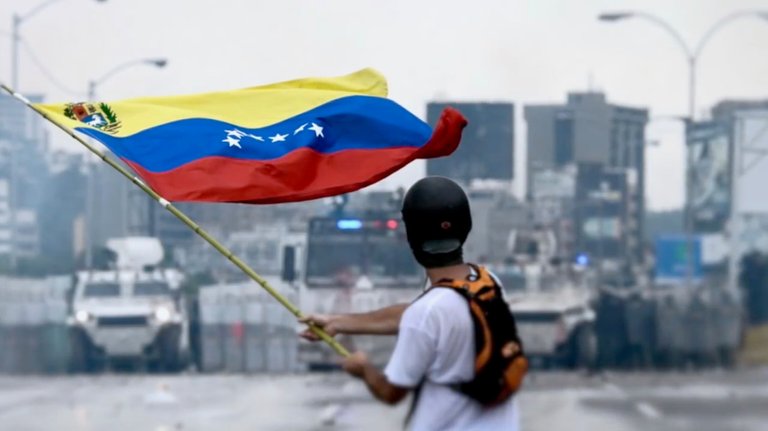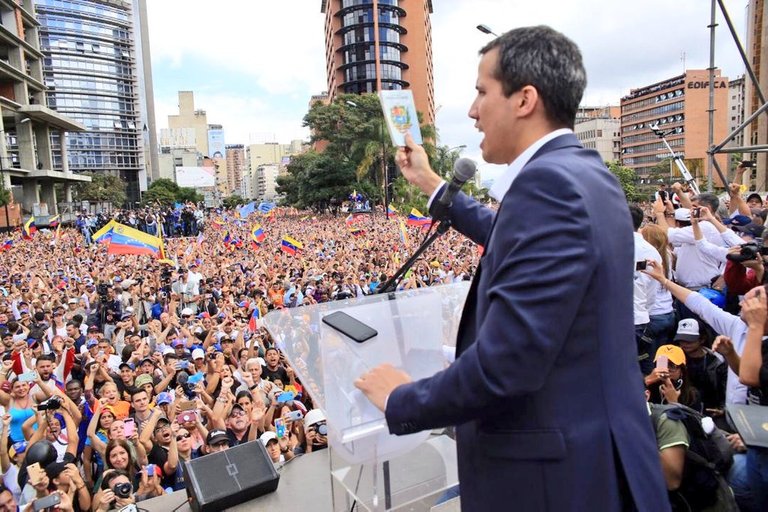
After 20 years of being submerged in a dictatorship, with a large number of deaths and political prisoners in the protests of 2014 and 2017, we Venezuelans found ourselves trapped in an economic, social and political crisis from which there was no end in sight, without reliable political leaders to support the sacrifice of an entire society that had gone out on several occasions to defend their rights and demand something very simple: that we want a country in which we can live and not have to survive. That we have basic resources, medicines, food, security, that our lives are not endangered in the hands of the criminals or the State forces. That the media can report freely without being censored.
All we Venezuelans are asking for is quality of life. Democracy. Freedom.
Today, hope emerged after being hidden for a long time. Evoking January 23, 1958, a historic date for us, since on that day the dictator Marcos Pérez Jiménez was expelled from the country, giving way to democracy in our territory, a cabildo was convoked throughout the nation.
The open cabildos as protests have given good results in recent days in Venezuela, since they have succeeded in gathering people in different popular areas of the country. All this has arisen after Juan Guaidó, president of the National Assembly (Legislative Power and the only institution democratically elected by the Venezuelan people through the vote) summoned a great national mobilization against the dictator Nicolás Maduro, who on January 10 took the oath as president of the country after fraudulent elections, which were questioned by the international community.
That mobilization was scheduled for today, January 23, 2019, recalling the historical date mentioned above, with the idea of returning democracy to Venezuela. Many people, including myself, were skeptical because we have already received many blows and disappointments after times of protests. We have lost a lot without achieving anything; that is what we felt.
So people today flooded the streets, in every state and city in the country.
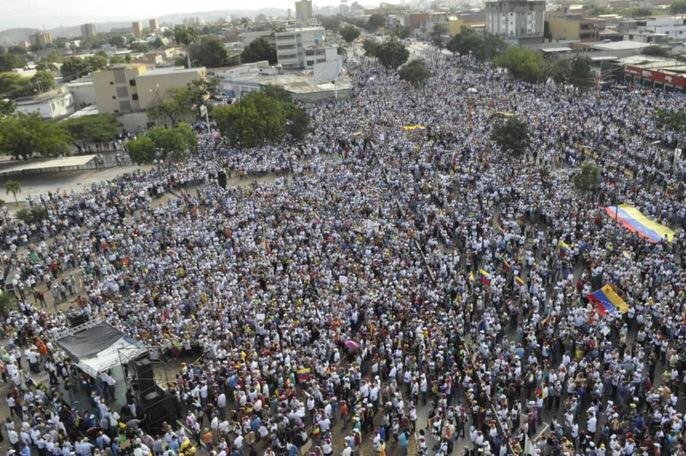
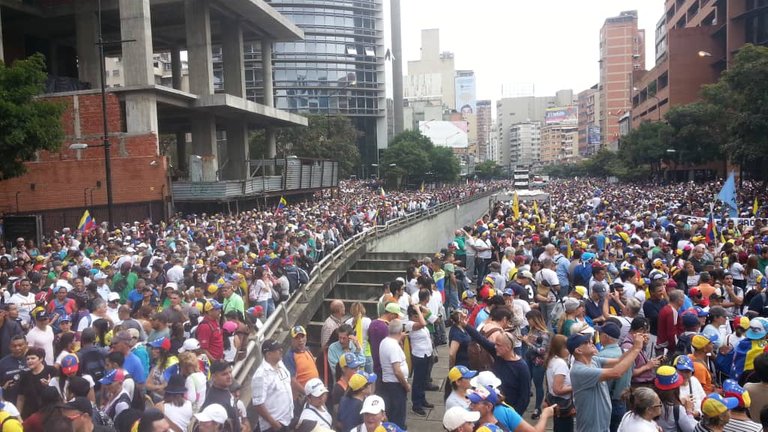
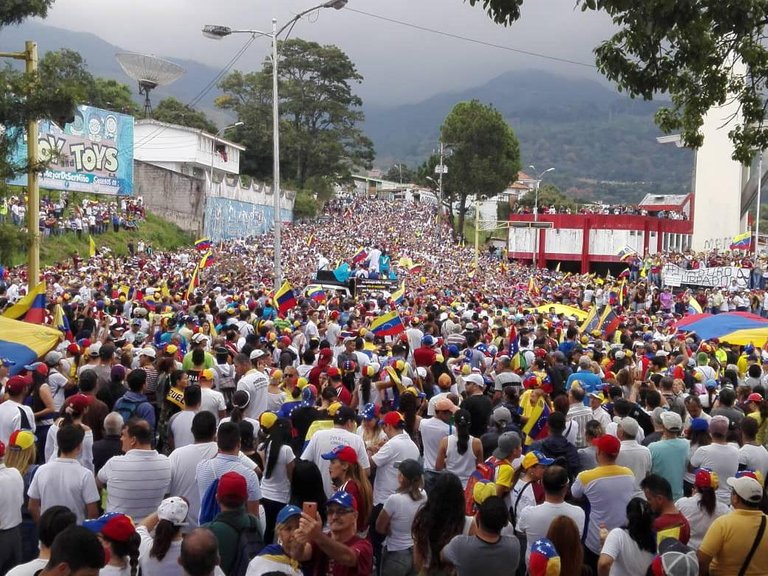
The energy in the atmosphere had an air of hope and the feeling took hold of all Venezuelans, inside and outside the country. From the naive to the incredulous. And then Juan Guaidó, president of the National Assembly, took the oath as interim president, assuming the responsibilities of the Executive Power, relying on articles 233, 333 and 350 of the Constitution of the Bolivarian Republic of Venezuela.
Article 233: The President of the Republic shall become permanently unavailable to serve by reason of any of the following events: death; resignation; removal from office by decision of the Supreme Tribunal of Justice; permanent physical or mental disability certified by a medical board designated by the Supreme Tribunal of Justice with the approval of the National Assembly; abandonment of his position, duly declared by the National Assembly; and recall by popular vote.
When an elected President becomes permanently unavailable to serve prior to his inauguration, a new election by universal suffrage and direct ballot shall be held within 30 consecutive days. Pending election and inauguration of the new President, the President of the National Assembly shall take charge of the Presidency of the Republic.
When the President of the Republic becomes permanently unavailable to serve during the first four years of this constitutional term of office, a new election by universal suffrage and direct ballot shall be held within 30 consecutive days. Pending election and inauguration of the new President, the Executive Vice-President shall take charge of the Presidency of the Republic.
In the cases describes above, the new President shall complete the current constitutional term of office. If the President becomes permanently unavailable to serve during the last two years of his constitutional term of office, the Executive Vice-President shall take over the Presidency of the Republic until such term is completed.
Article 333: This Constitution shall not cease to be in effect if it ceases to be observed due to acts of force or because or repeal in any manner other than as provided for herein.
In such eventuality, every citizen, whether or not vested with official authority, has a duty to assist in bringing it back into actual effect.
Article 350: The people of Venezuela, true to their republican tradition and their struggle for independence, peace and freedom, shall disown any regime, legislation or authority that violates democratic values, principles and guarantees or encroaches upon human rights.
To see a man express himself with composure, calm and evoking only the law, presenting himself as a public server and giving prominence to civil society, is something new for me. I remember well when Hugo Chávez won the elections that December of 1998, I was 8 years old. My mother was devastated and I had a terrible feeling, a feeling that my future was doomed, and so it was. Through a demagogic, populist rhetoric, full of hatred and resentment, Chávez won over the Venezuelan population of the time, and plunged us all into a socialist system that has led to the death of thousands of people, and those of us who survive do so in poor conditions.
So, after listening to such a speech for most of my life, listening to Guaidó's words, added to a new hope that this regime could come to an end, I couldn't hold back the tears, and I think it was the same feeling of many of my compatriots.
After this pronouncement, the governments of the United States, Canada, Colombia, Argentina, Chile, Peru, Ecuador, Honduras, Costa Rica, Guatemala, Brazil and Paraguay have recognized Juan Guaidó as the legitimate interim president of Venezuela.
We don't know exactly what the future holds. But, frankly, with this dictatorship there is no future, so for the first time in many years we live in the hope of having one. That our Venezuelan family and friends return from abroad, that we can work and have quality of life in our own country.
We don't know what will happen tomorrow, but at least today we have a little breath of freedom.
